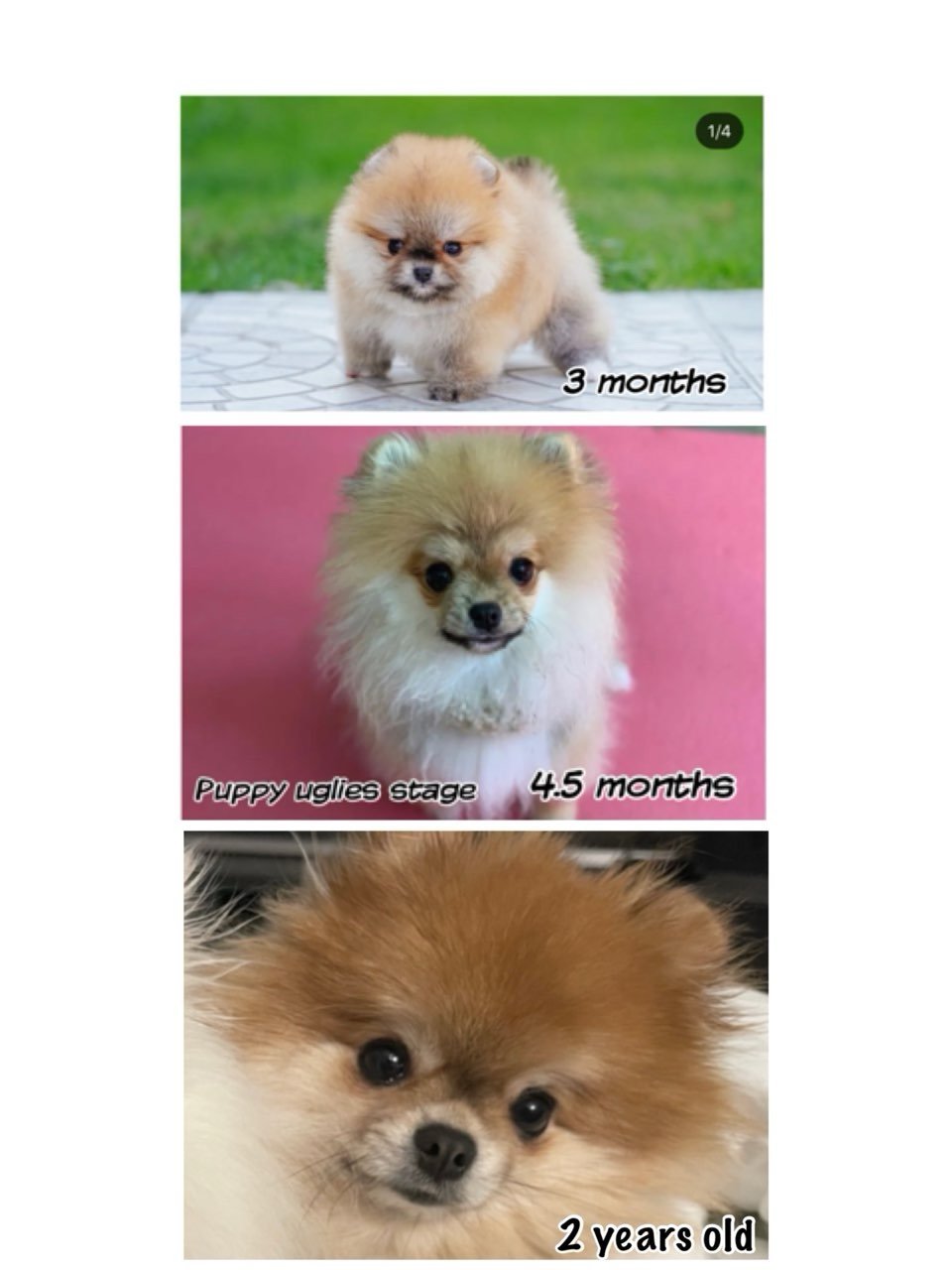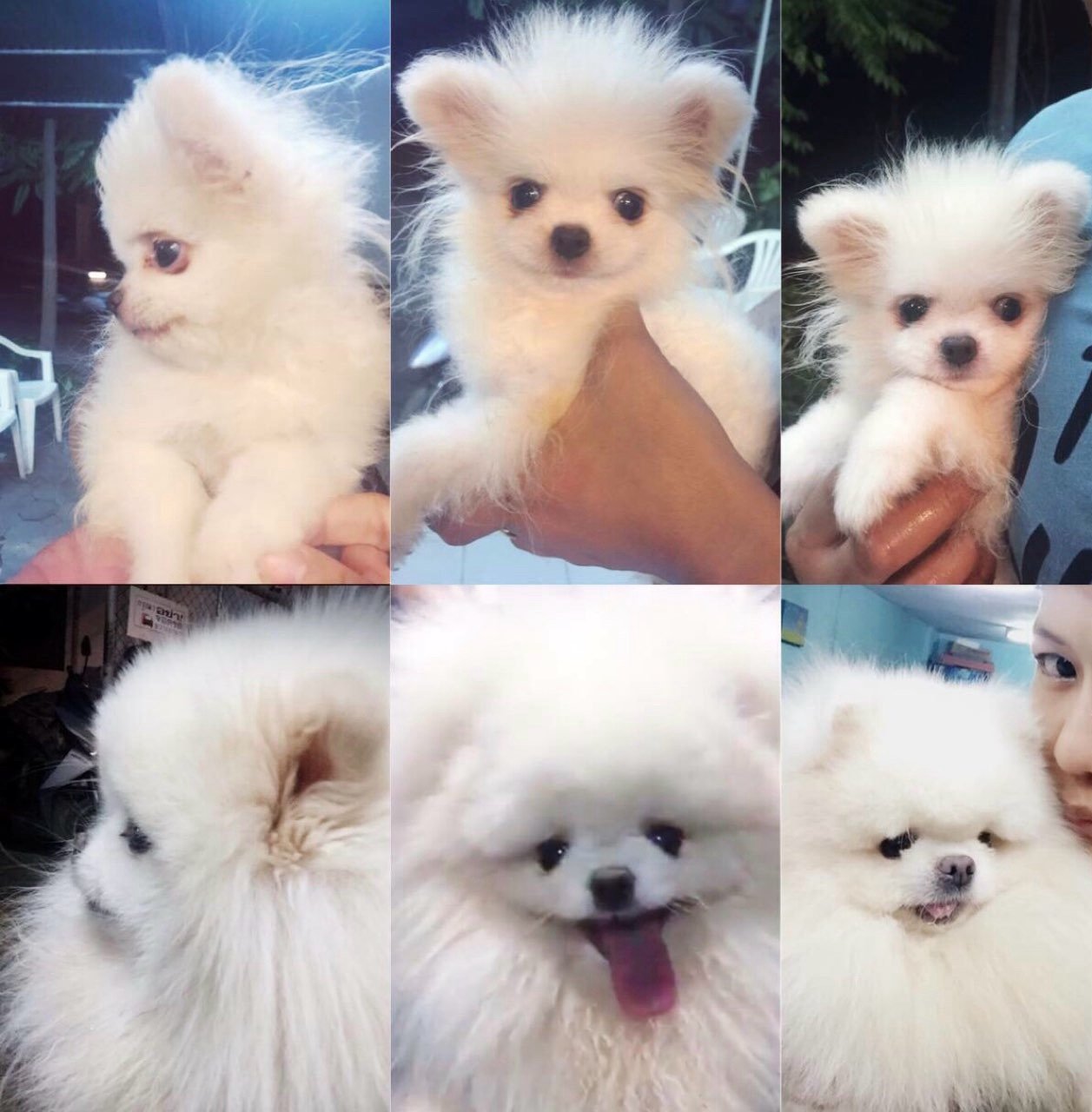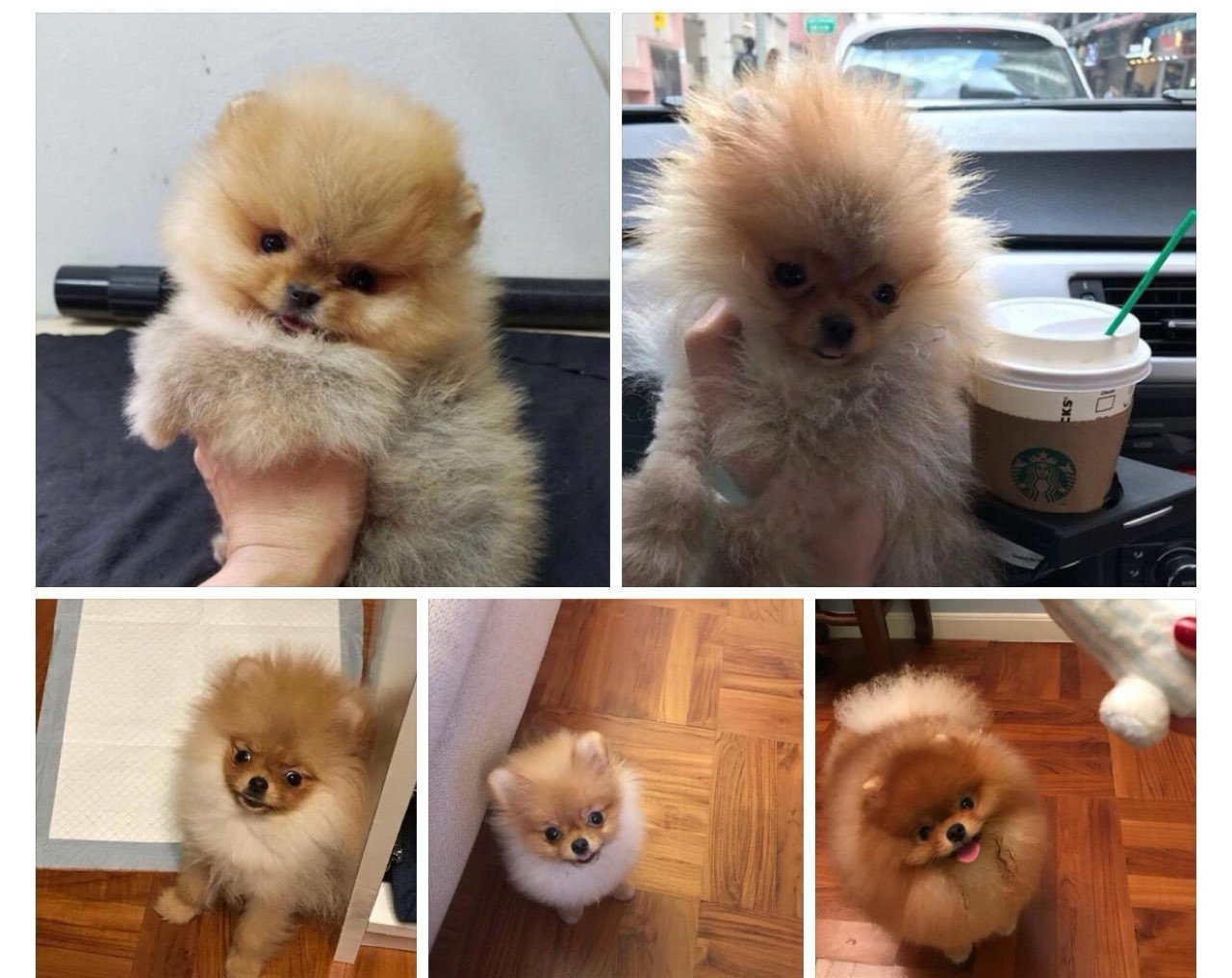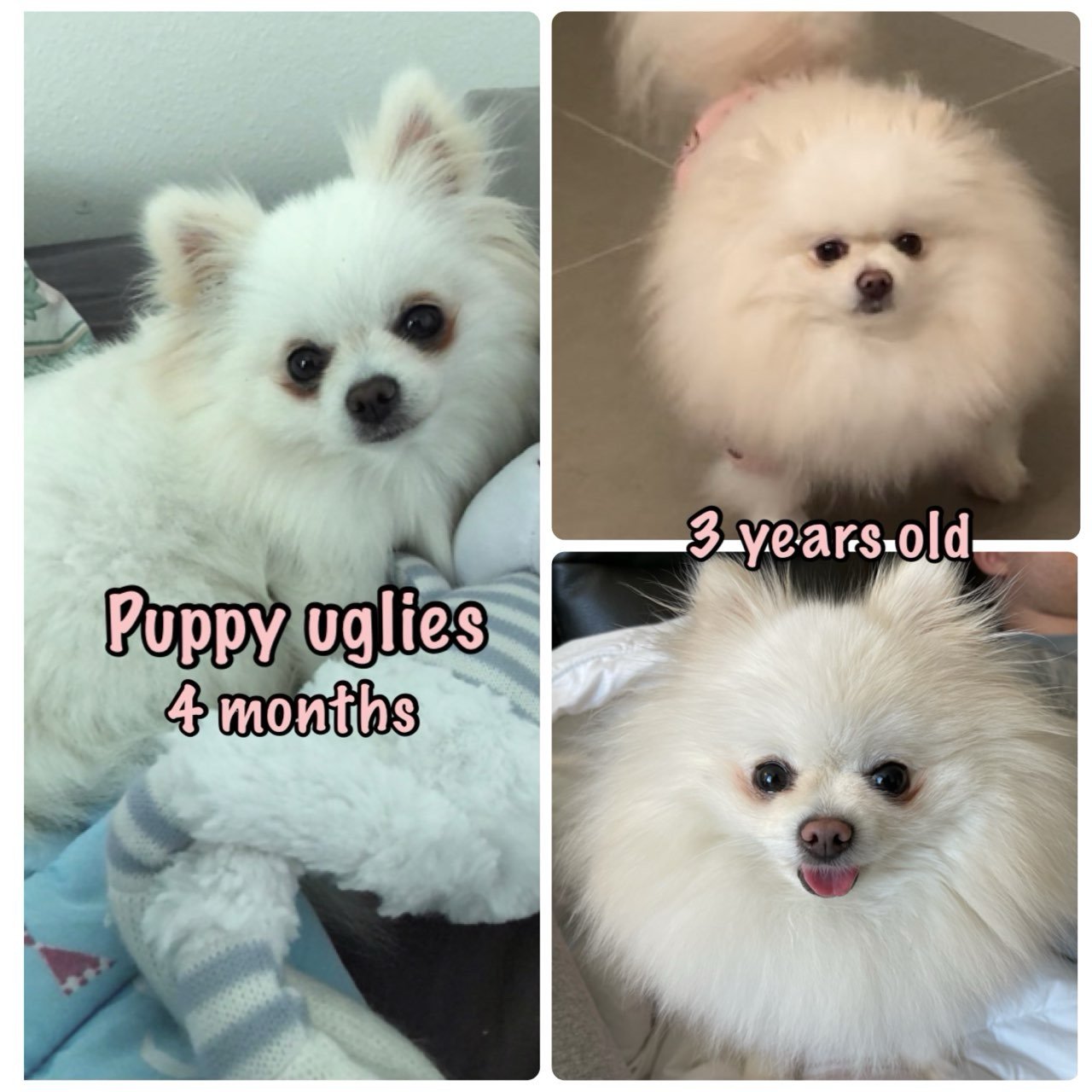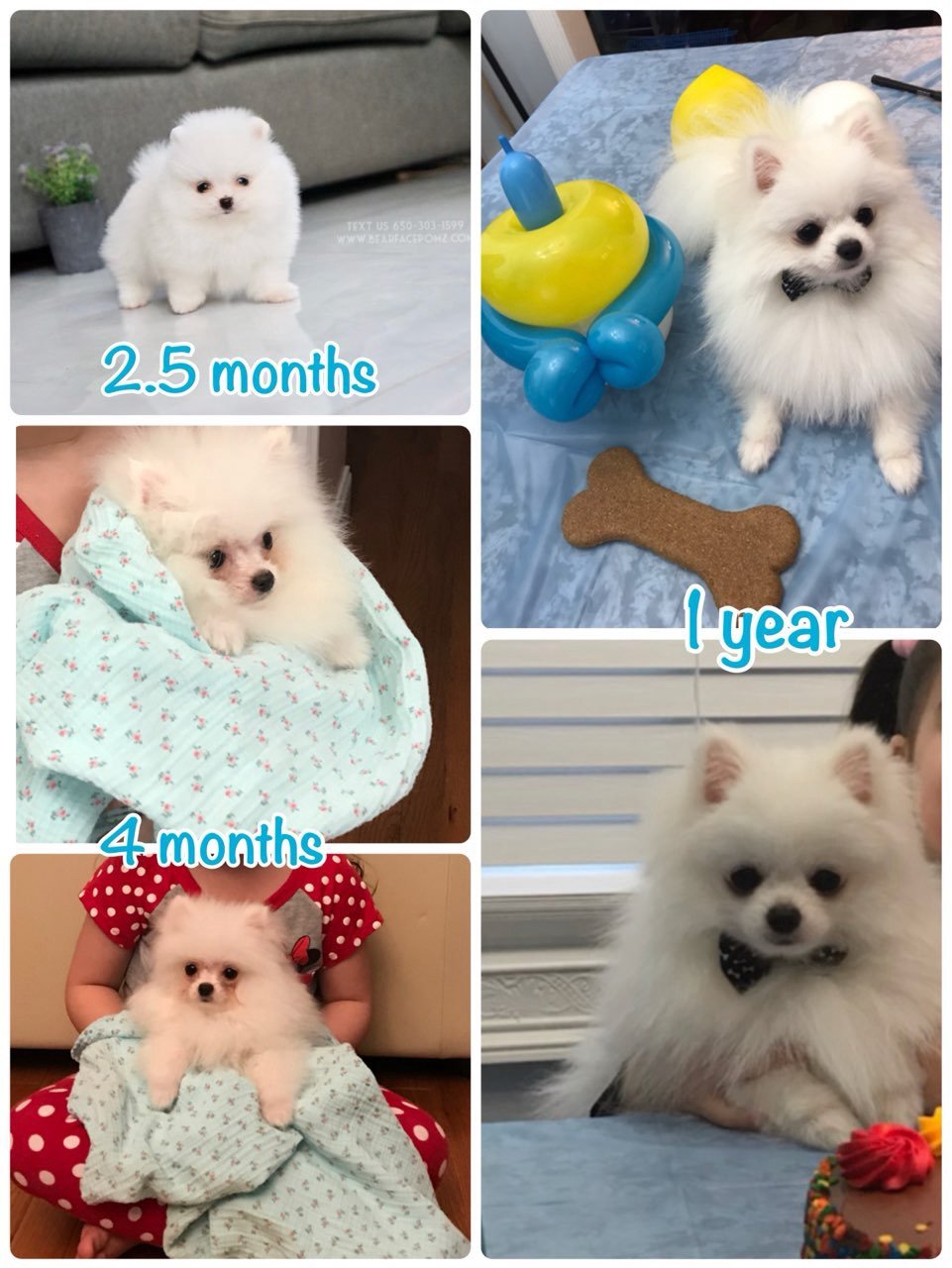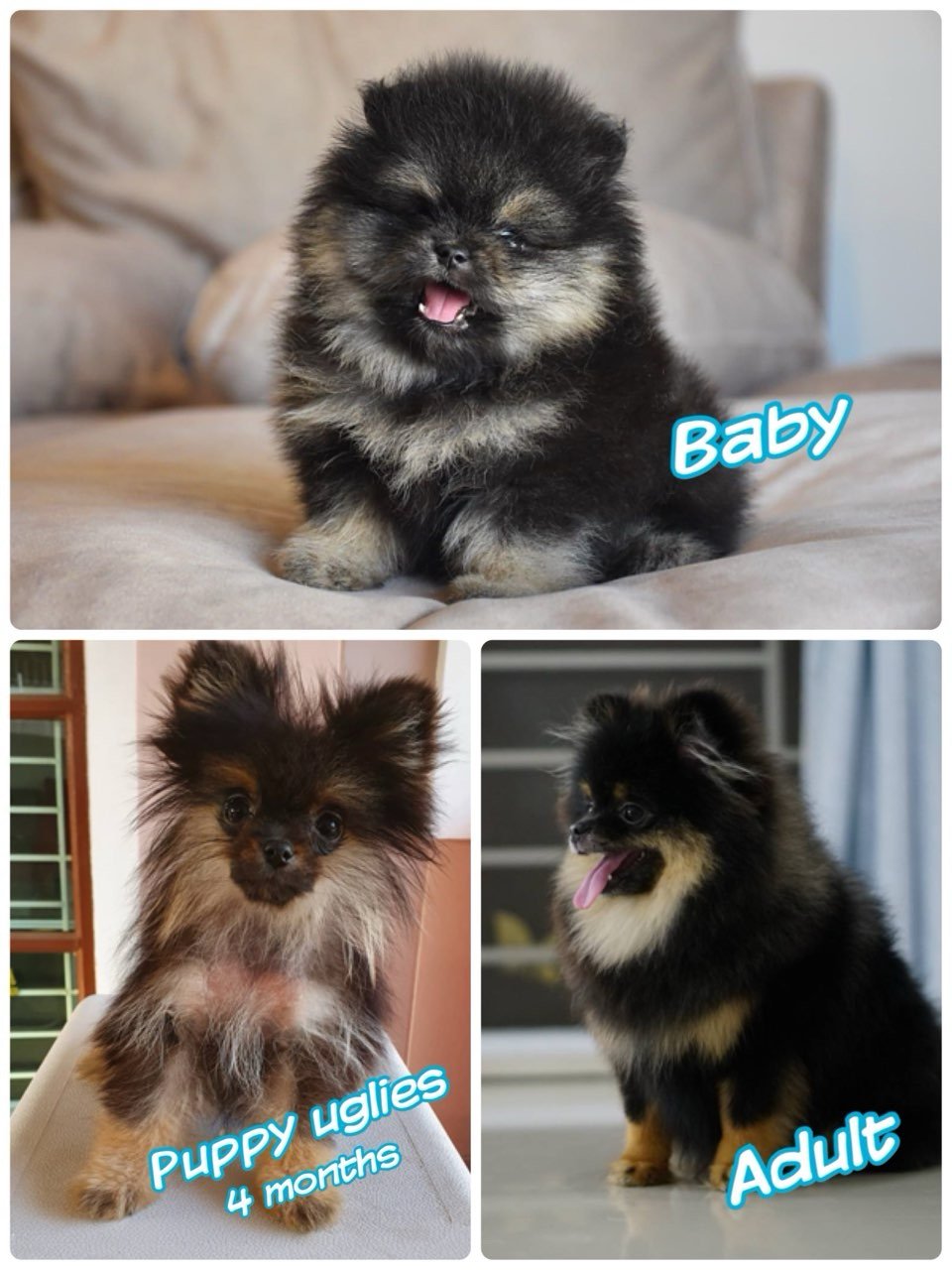
If you’ve noticed your Pomeranian puppy starting to lose their fluffy coat, don’t panic! What you’re likely seeing is a normal phase known as the “Puppy Uglies.” This term might sound alarming, but it’s a perfectly normal part of a Pomeranian’s development. Let’s dive into what “Puppy Uglies” entails and what you can expect during this phase.
What Are “Puppy Uglies”?
The “Puppy Uglies” is a phase that many Pomeranian puppies go through typically between the ages of four to six months, though it can start as early as three months and extend to about ten months. During this period, your puppy will shed their soft, dense baby fur and gradually grow their adult coat. This transition can make them look a bit patchy or even somewhat bald, hence the name “Puppy Uglies.”
Why Does It Happen?
This transformation occurs because Pomeranians, like many double-coated breeds, shed their initial coat to make way for a more mature and weather-resistant coat. The process is entirely natural and marks a transition from puppyhood to adolescence.
What to Expect
During the “Puppy Uglies,” your Pomeranian might not look their fluffiest self. Here’s what you might notice:
-
Uneven Fur Loss: The fur might shed unevenly, resulting in patchy spots. The coat on the face and legs often thins out more noticeably.
-
Texture Changes: The new incoming coat may have a different texture. It might be coarser or stiffer compared to their soft puppy fur.
-
Color Changes: Don’t be surprised if the color of their coat changes slightly as the new adult fur comes in.
Caring for Your Pomeranian During This Phase
While your puppy is going through the “Puppy Uglies,” it’s important to provide proper care to ensure healthy skin and coat growth. Here’s what you can do:
-
Proper Nutrition: Ensure your Pomeranian is eating a balanced diet that’s rich in nutrients that support coat health, like omega fatty acids.
-
Gentle Grooming: Regular grooming is important, but be gentle. Use a soft brush designed for puppies or a slicker brush that won’t pull on their sensitive skin.
-
Skin Care: Check their skin regularly for any signs of irritation or infection, which can sometimes occur during intense shedding phases.
When to Consult a Veterinarian
While the “Puppy Uglies” is a normal stage, it’s good to keep an eye out for signs that might indicate something more serious than just normal shedding. Consult your veterinarian if you notice:
-
Excessive Scratching: If your puppy is scratching excessively, it might be a sign of skin irritation or allergies.
-
Bald Spots: Completely bald spots or sores on the skin can indicate a skin infection or parasite problem.
-
General Health Concerns: Any changes in behavior or overall health should prompt a vet visit to rule out underlying health issues.
Patience Is Key
The “Puppy Uglies” phase can be a test of patience, but rest assured that it’s temporary. Your Pomeranian will grow into their beautiful adult coat in time. Continue to provide love, care, and attention as they navigate this awkward phase. Before you know it, they’ll emerge with a gorgeous, fluffy coat that Pomeranians are famed for.
Remember, every Pomeranian is unique, and while they all go through this phase, each puppy’s experience can be a bit different. Support your furry friend with understanding and care, and you’ll both get through the “Puppy Uglies” just fine!
As your Pomeranian moves past the “Puppy Uglies,” you’ll start to see the emergence of their adult coat. This coat will be thicker, fuller, and more resilient than their baby fur. Here’s what to expect as this phase concludes:
Transition to Adult Coat
-
Fuller Appearance: The new coat will gradually fill in, covering any patchy areas that were noticeable during the “Puppy Uglies.”
-
Improved Texture and Shine: You’ll notice the texture of their coat becoming more uniform and gaining a healthy shine, indicative of good health and proper nutrition.
Continued Grooming Needs
Even after your Pomeranian has grown their adult coat, regular grooming remains crucial. Here are some tips for ongoing coat care:
-
Regular Brushing: Brush your Pomeranian’s coat several times a week to prevent mats and tangles and to distribute skin oils throughout the fur.
-
Bathing: Bathing should be done once every three to six weeks, depending on your dog’s lifestyle and the cleanliness of their coat. Always use a dog-specific shampoo that maintains the natural oils in their fur.
-
Professional Grooming: Consider professional grooming every few months, especially if your Pomeranian has a particularly thick coat or if you prefer a specific style.
Monitoring Skin and Coat Health
As your Pomeranian grows, keep a close eye on the health of their skin and coat:
-
Watch for Irritations: Continue to check regularly for any signs of irritation, dryness, or flaking, which could indicate a skin condition or dietary deficiency.
-
Diet and Supplements: Ensure your dog’s diet supports coat health. Supplements like fish oil can be beneficial, but always consult with your vet before introducing any new supplements.
Emotional and Behavioral Changes
The end of the “Puppy Uglies” phase often coincides with your Pomeranian reaching adolescence. This period can bring new behavioral challenges and changes:
-
Training and Consistency: Continue with consistent training and reinforcement of good behavior. Adolescence can test boundaries, so patience and consistency are key.
-
Increased Energy and Curiosity: Your growing Pomeranian may display increased energy and curiosity. Providing ample playtime and mental stimulation is important to keep them engaged and happy.
Watching your Pomeranian transition from a puppy into a young adult is a rewarding experience. Celebrate their milestones and enjoy the unique personality traits they develop as they grow. Each stage of their life brings new joys and challenges, enriching your bond with them.
Final Thoughts
The “Puppy Uglies” is just one of many stages your Pomeranian will go through in their lifetime. Understanding and preparing for these phases helps you provide the best care for your furry companion. With the right care and attention, your Pomeranian will thrive and continue to be a loving, joyful presence in your life. Remember, the love and effort you invest in them during these formative phases will shape the wonderful companion they become.
